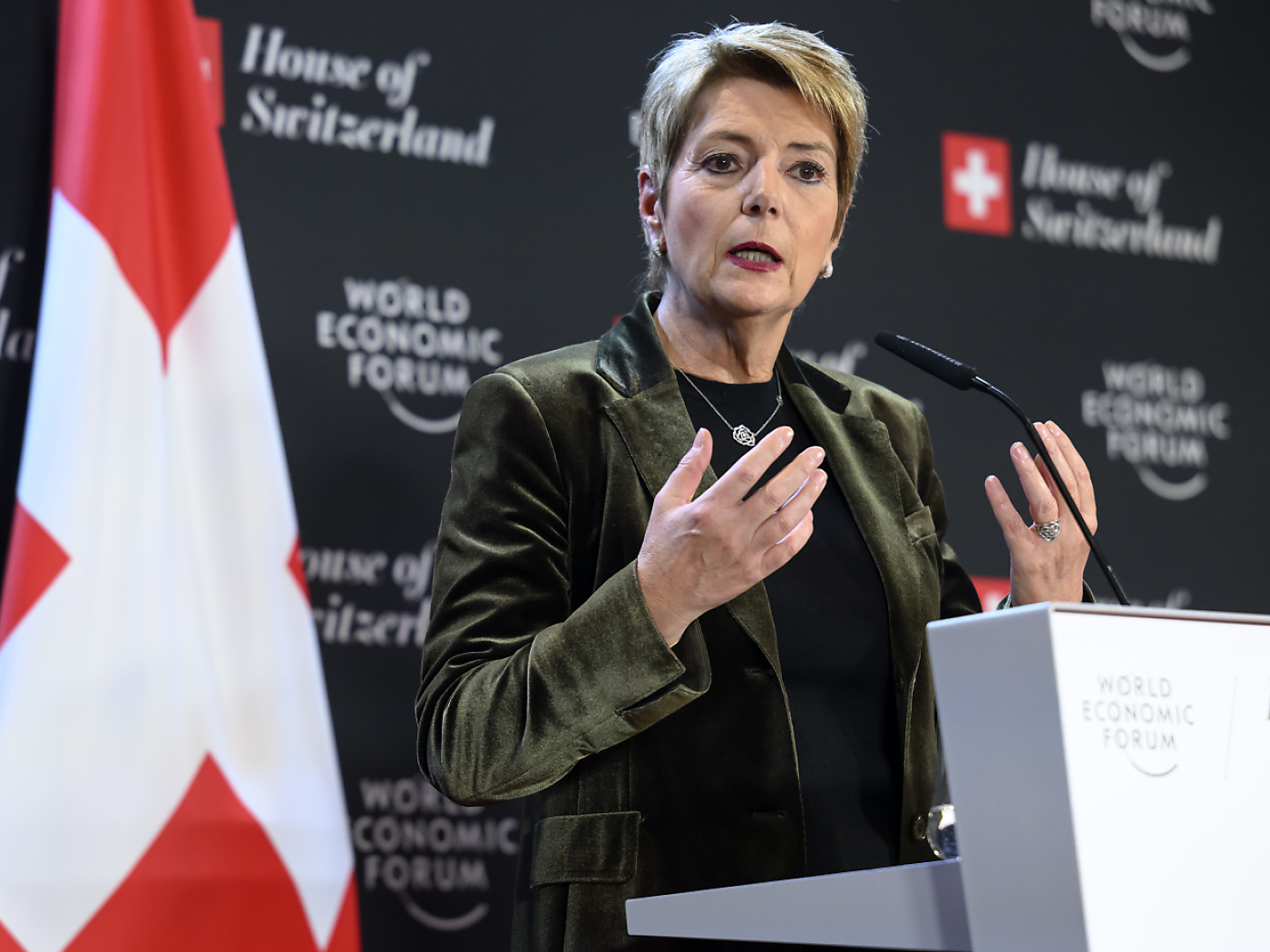
Swiss president downplays controversial comments on Vance speech

On Wednesday evening, Swiss President Karin Keller-Sutter qualified her controversial comments on US Vice President JD Vance’s speech in Munich. “I was only talking about one aspect of Vance’s statements,” she said on Swiss public television, RTS.
+ Get the most important news from Switzerland in your inbox
She was referring to the statements about listening to the population and guaranteeing freedom of expression. “I didn’t talk about the rest. It’s not up to me to comment or evaluate Vance’s statements about the US or Europe.”

More
Swiss president: Vance speech a ‘plea for direct democracy’
In an interview with French-language paper Le Temps, Keller-Sutter had previously stated that Vance’s speech was “liberal, in a certain sense very Swiss” when he emphasised the need to listen to the people. “He spoke about values that need to be defended and that we share, such as freedom and the ability to express oneself. It was a plea for direct democracy,” she added. In doing so, she deviated from the critical reaction of many European politicians.
Vance had declared in Munich that “the real enemy of Europe is neither China nor Russia, but those governments that do not listen to their people and instead suppress dissenting voices, leading to a regression of freedom of expression”.
‘The Swiss model is the opposite of this’
Keller-Sutter, who holds the rotating Swiss presidency this year, made it clear that she did not feel bothered by this criticism. “The Swiss model is the opposite of this. The fact that we have a government with four parties, that there are referendums and that criticism can be voiced – even against me – shows that this freedom of opinion works in Switzerland.”
Asked about US President Donald Trump’s strategy to end the war in Ukraine, Keller-Sutter said she did not understand exactly what plans the US government was pursuing. “The Trump system is an announcement system, a shock system. You say something and then see how it develops.”
This type of policy is difficult for Switzerland: “We are used to making policy within certain framework conditions. If someone suddenly breaks out of this framework, it’s brutal.”
Keller-Sutter’s assessment of Vance’s speech sparked debate in Switzerland. Criticism came from former government minister Pascal Couchepin, the Centre Party and the Greens, among others.
Translated from German by DeepL/jdp
This news story has been written and carefully fact-checked by an external editorial team. At SWI swissinfo.ch we select the most relevant news for an international audience and use automatic translation tools such as DeepL to translate it into English. Providing you with automatically translated news gives us the time to write more in-depth articles.
If you want to know more about how we work, have a look here, if you want to learn more about how we use technology, click here, and if you have feedback on this news story please write to english@swissinfo.ch.

In compliance with the JTI standards
More: SWI swissinfo.ch certified by the Journalism Trust Initiative






























You can find an overview of ongoing debates with our journalists here . Please join us!
If you want to start a conversation about a topic raised in this article or want to report factual errors, email us at english@swissinfo.ch.